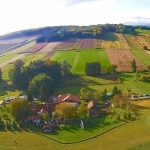Restaurateurs of the Kornati archipelago expressed dissatisfaction with the way the National Park is managed. There have been talks about launching a petition for the NP to lose its title; while such an initiative isn’t likely to see any results, they do make a good point of the local population being disregarded
Two months ago, we reported about Kornati Revival (Rediviva Kurnata), a project aiming to protect the natural and cultural heritage of the Kornati archipelago. Worth around 50 million kuna, the project was presented as focused on sustainable growth and management. It sounded quite commendable – at least on paper.
Well, it turned out there’s another side of the coin, recently presented by restaurateurs of the Kornati at a meeting with Josip Zanza, the director of Kornati National Park. The meeting was supposed to result in cooperation of the business owners and the management of the NP; instead, it ended in disaster. Restaurateurs of the Kornati islands threatened to launch a petition for the Kornati NP to be removed from the National Park list, reports Šibenski on March 22, 2018.
“We don’t want drones on our estates, we oppose entrance fees being charged on the basis of ship length instead of the number of passengers. Kornati National Park calls itself a non-profit institution, and yet, it all comes down to turning as big of a profit as possible, so all things considered, we don’t want such a national park at all”, the restaurateurs said.
They also rejected a proposal aiming to position the wider area of Kornati NP as a top-destination for gastronomy. “You’re late in that regard as well, all of us have already positioned ourselves individually, and how were you even planning to present the wider area of the NP as a gastronomic top-destination? With Korean fish and Californian squid?”, they asked, referring to the fishing ban in the Kornati waters that has been in effect for two years now – applying to the local population as well.
While the management of the National Park thinks the Kornati Revival project will benefit the archipelago, the business owners had quite a lot to say about it, expressing the opinion that the project will only result in an immense waste of money. The only parts of the project they think to be of use are the introduction of a smart waste management system and the planned acquisition of a small ferry. Put together, the two will cost some 2 million kuna – a minor amount in comparison with the overall project worth of over 49 million kuna.
The restaurateurs recalled the project also involves reconstruction of a presentational centre in Betina worth over 12 million kuna; considering the centre is named The Chest of Secrets, they bitterly inquired whether the chest is getting encased with diamonds. “We don’t even have an internet connection required for a fiscal cash register to operate. You could have used that money to sort out the entire infrastructure of the Kornati, you could have introduced power and a water supply system!”
The main source of frustration in this whole ordeal is the fact that the local population won’t benefit from the Kornati Revival project. Professor Vladimir Skračić, the president of the Association Kurnatari, said the type of sustainable growth the project is striving for will only hurt the island residents. Back in 1980, when the archipelago got protected as a National Park, some 50 professional fisherman were active in the area. These days, no one is allowed to fish within the borders of the NP – what kind of growth are we talking about, if the locals have their hands tied?
Touching on the subject of a possible petition for abolishment of the NP, professor Skračić said that the Association Kurnatari have never had such an intention, as they don’t see the existence of the NP as a problem. The real problem, he said, lies in the way the NP is managed. Since the day the institution was founded, the management only had one issue – the local population – because they never figured out a way to handle their rights and needs. In this day and age, inhabitants of protected areas are commonly asked to share their opinion on matters related to management of said areas – at least in Europe and the rest of the world. Kornati National Park and its population, it seems, still haven’t found a common ground.









